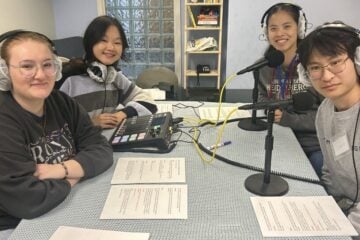CPB increases annual funding to public TV’s multicultural alliance
The five public media organizations that fund and distribute TV content created by nonwhite filmmakers will receive $500,000 increases in their annual funding from CPB.
CPB announced Monday that it is boosting its support for each of the independent nonprofits that make up the National Multicultural Alliance: Black Public Media, the Center for Asian American Media, Latino Public Broadcasting, Pacific Islanders in Communications and Vision Maker Media. The increase takes effect this fiscal year.
Totaling $2.5 million, the funding represents a 37% increase in CPB’s annual support to the National Multicultural Alliance organizations. CPB’s total annual support to all five will top $9 million.
The funding boost is the first to the NMCA organizations since 2010, said Leslie Fields-Cruz, executive director of Black Public Media. That increase turned out to be short-lived, however.
Following a 2013 federal budget sequestration that triggered budget and staff reductions at CPB, annual funding to each of the NMCA members decreased by 20%.
The additional $500,000 provided each organization this year brings funding levels slightly above the increase that CPB provided in 2010, she said.
NMCA leaders worked with the National Communication Association to document the rising costs of production and make the case to CPB, Fields-Cruz said. “Luckily, within the walls of CPB, they were listening and so when the opportunity came about to make the increase happen, they did.”
BPM’s support for Black filmmakers and media creatives includes production of AfroPoP: The Ultimate Cultural Exchange, public TV’s only national series devoted to stories by and about the African diaspora, and incubator and training programs for emerging Black media makers. Its annual funding from CPB will grow to more than $1.85 million this year, according to a news release.
The increase “not only affords us the opportunity to continue to bring the talented voices telling the stories of Black life front and center, but it reminds us that we work within a community of public media professionals who all strive to create and showcase content that genuinely reflects the diverse communities in which we all live,” Fields-Cruz said in a news release.
Leaders of Pacific Islanders in Communications are talking with CPB about their plans for the new funds, said Leanne Ferrer, executive director. She expects that most of the increase will back expansion of PIC’s existing programs and creation of new content. PIC produces Pacific Heartbeat, a documentary series entering its 10th season in national distribution through American Public Television.
Ferrer said NMCA organizations are also looking at training initiatives that will bring filmmakers and content creators together “rather than each one of us doing the same work.” In the past, the alliance has offered training on pitching films and producing impact media. They’ve also paired filmmakers with mentors who help them with their film projects.
The Center for Asian American Media plans to expand its work in regional talent development and efforts to support content creators who want to produce media without relocating to coastal cities that are major hubs for TV and film production, said Stephen Gong, executive director.
Gong said he hopes to build initiatives designed to increase the number of diverse creators working in public media. One such “pipeline collaboration,” as he called it, is already creating opportunities for filmmakers in the southern United States. Hindsight is a new partnership between CAAM, Firelight Media and Reel South, the independent documentary series co-produced by PBS North Carolina, South Carolina’s ETV and Louisiana Public Broadcasting. The project supports six filmmakers who will produce short films for a new digital series that explores the lived experiences of communities of color in the South and in Puerto Rico.
CPB’s commitment to funding work by diverse media creators “spans decades and has resulted in content that educates, informs and inspires mutual understanding and respect,” said President Pat Harrison in a news release. Increased support to the National Multicultural Alliance “will build on that foundation and ensure that public media’s content reflects the broadest range of cultural and social perspectives.”
“The NMCA comprises individual organizations that encourage and fund diverse storytellers whose voices and experiences might never be heard without their support,” Harrison said.
This story has been updated with details about the 2013 reduction of CPB funding and responses from leaders of NMCA organizations.
Correction: An earlier version of this story misidentified the public TV stations that produce Reel South. The co-producers are PBS North Carolina, South Carolina’s ETV and Louisiana Public Broadcasting.





